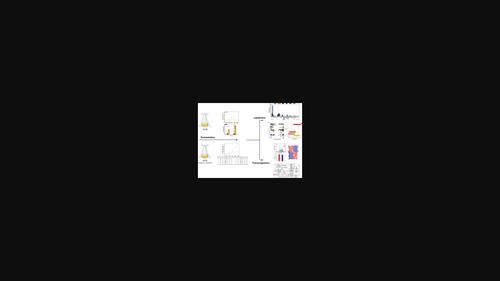当前位置:
X-MOL 学术
›
Biotechnol. J.
›
论文详情
Our official English website, www.x-mol.net, welcomes your feedback! (Note: you will need to create a separate account there.)
Lipidomic and transcriptomic analysis of the increase in eicosapentaenoic acid under cobalamin deficiency of Schizochytrium sp
Biotechnology Journal ( IF 4.7 ) Pub Date : 2024-03-13 , DOI: 10.1002/biot.202300612 Lin‐Hui Yang 1 , Meng‐zhen Liu 1 , Zi‐Lei Chen 1 , Ling‐Ling Tong 1 , Dong‐Sheng Guo 1
Schizochytrium sp . is a heterotrophic microorganism capable of accumulating polyunsaturated fatty acids and has achieved industrial production of docosahexaenoic acid (DHA). It also has the potential for eicosapentaenoic acid (EPA) production. In this study, it was found that the cell growth, lipid synthesis and fatty acid composition of Schizochytrium sp. were significantly affected by the level of cobalamin in the medium, especially with regard to the content of EPA in the fatty acids. The content of EPA in the fatty acids increased 17.91 times, reaching 12.00%, but cell growth and lipid synthesis were significantly inhibited under cobalamin deficiency. The response mechanism for this phenomenon was revealed through combined lipidomic and transcriptomic analysis. Although cell growth was inhibited under cobalamin deficiency, the genes encoding key enzymes in central carbon metabolism were still up‐regulated to provide precursors (Acetyl‐CoA) and reducing power (NADPH) for the synthesis and accumulation of fatty acids. Moreover, the main lipid subclasses observed during cobalamin deficiency were glycerolipids (including glycerophospholipids), with EPA primarily distributed in them. The genes involved in the biosynthesis of these lipid subclasses were significantly up‐regulated, such as the key enzymes in the Kennedy pathway for the synthesis of triglycerides. Thus, this study provided insights into the specific response of Schizochytrium sp. to cobalamin deficiency and identified a subset of new genes that can be engineered for modification.
中文翻译:

裂殖壶菌缺乏钴胺素时二十碳五烯酸增加的脂质组学和转录组学分析
裂殖壶菌 。是一种能够积累多不饱和脂肪酸的异养微生物,并已实现二十二碳六烯酸(DHA)的工业化生产。它还具有生产二十碳五烯酸(EPA)的潜力。本研究发现,细胞生长、脂质合成和脂肪酸组成裂殖壶菌属 sp。培养基中钴胺素水平的显着影响,特别是脂肪酸中 EPA 的含量。脂肪酸中EPA含量增加17.91倍,达到12.00%,但钴胺素缺乏时细胞生长和脂质合成受到明显抑制。通过脂质组学和转录组学的联合分析揭示了这种现象的反应机制。尽管钴胺素缺乏时细胞生长受到抑制,但编码中心碳代谢关键酶的基因仍然上调,为脂肪酸的合成和积累提供前体(乙酰辅酶A)和还原力(NADPH)。此外,在钴胺素缺乏期间观察到的主要脂质亚类是甘油脂(包括甘油磷脂),其中EPA主要分布在其中。参与这些脂质亚类生物合成的基因显着上调,例如合成甘油三酯的肯尼迪途径中的关键酶。因此,这项研究提供了对具体反应的见解裂殖壶菌属 sp。钴胺素缺乏症,并确定了可以进行改造的新基因子集。
更新日期:2024-03-13
Biotechnology Journal ( IF 4.7 ) Pub Date : 2024-03-13 , DOI: 10.1002/biot.202300612 Lin‐Hui Yang 1 , Meng‐zhen Liu 1 , Zi‐Lei Chen 1 , Ling‐Ling Tong 1 , Dong‐Sheng Guo 1
Affiliation

|
中文翻译:

裂殖壶菌缺乏钴胺素时二十碳五烯酸增加的脂质组学和转录组学分析



























 京公网安备 11010802027423号
京公网安备 11010802027423号